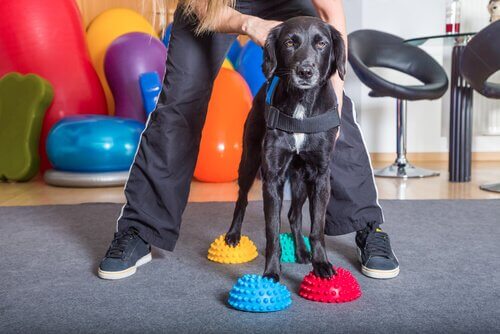Is Your Pet Shop Legal?


Written and verified by the lawyer Francisco María García
The two essential requirements that these establishments must have are an opening license and a pet shop license. These stores are centers for the purchase and sale of animals, accessories, and dog houses. Additionally, these businesses must meet certain conditions that guarantee the welfare and health of the animals that are there.
Hygiene measures
There are often cases of overcrowded animals in poor hygienic and unsanitary conditions.

Autonomous governments are the bodies in charge of approving the different animal protection legislation. Given the data that the autonomic legislation has gathered about these centers, there are some fundamentally hygienic-sanitary issues that should be addressed.
Protecting public health is one of their main objectives. They want to keep establishments with a large number of animals from becoming a center for diseases. They also want to ensure the welfare of all the animals regarding correct diet, proper treatment, etc.
Documentation
Town Councils are in charge of granting opening licenses for veterinary practices and pet shops. These councils will verify that the establishment meets the requirements to be a zoological center.
According to the current regulations, in order for an establishment to be a zoological center, it must have adequate health care for the animals. Additionally, it must have a separate area for sick dogs or those that need to be quarantined. The establishment’s hygienic measures should be optimal and the space also needs to be large enough to avoid overcrowding.
The opening license and the pet shop license are the required legal documentation. They’re necessary to open and maintain an establishment that houses animals.
Customers who go to these types of stores, to dog breeding sites, kennels and canine training centers have the right to demand to see this documentation. This will verify that the center meets all the legal regulations before the customer purchases or adopts a pet or uses the facility’s services. This is the best way to avoid any problems.
Some tips to avoid problems in the pet shop
- First, as we’ve said, the best way to avoid this is to ask for the center’s documentation. The owner of the establishment must present the opening license and pet shop license if a client asks for it.
- Also, you can ask certain protection agencies for recommendations. They usually have lists of legal and adequate establishments that are authorized to house animals.
- Then, once you’ve gone to the pet shop and have found your future pet, you should ask for the animal’s documentation, especially the dog’s health card. This card holds all the possible information about the dog, like his breed and pedigree. If he’s a purebred, you should also request his vaccination calendar, a record of the vaccines he’s already received, and a record of his deworming.
- The documentation they give you must have a stamp from a veterinary clinic, as well as their corresponding registration number.
- Also, it’s important to ask for a purchase-sale document from the establishment that will state that the animal is healthy. This is a guarantee in case you need to file a claim.

- Once you have your pet, you should take him to the vet. She’ll give him a check-up and verify his state of health. Then, if the dog needs some type of treatment, the establishment will be responsible for the costs.
Reporting illegalities
If you know of any animal overcrowding in kennels or clinics, maltreatment or unhygienic conditions, you should notify the authorities.
According to the Animal Justice Association, there are also many complaints about health records and pedigrees being falsified. This is even the case when they seem to have their “origin books”, because these can also be falsified.
The two essential requirements that these establishments must have are an opening license and a pet shop license. These stores are centers for the purchase and sale of animals, accessories, and dog houses. Additionally, these businesses must meet certain conditions that guarantee the welfare and health of the animals that are there.
Hygiene measures
There are often cases of overcrowded animals in poor hygienic and unsanitary conditions.

Autonomous governments are the bodies in charge of approving the different animal protection legislation. Given the data that the autonomic legislation has gathered about these centers, there are some fundamentally hygienic-sanitary issues that should be addressed.
Protecting public health is one of their main objectives. They want to keep establishments with a large number of animals from becoming a center for diseases. They also want to ensure the welfare of all the animals regarding correct diet, proper treatment, etc.
Documentation
Town Councils are in charge of granting opening licenses for veterinary practices and pet shops. These councils will verify that the establishment meets the requirements to be a zoological center.
According to the current regulations, in order for an establishment to be a zoological center, it must have adequate health care for the animals. Additionally, it must have a separate area for sick dogs or those that need to be quarantined. The establishment’s hygienic measures should be optimal and the space also needs to be large enough to avoid overcrowding.
The opening license and the pet shop license are the required legal documentation. They’re necessary to open and maintain an establishment that houses animals.
Customers who go to these types of stores, to dog breeding sites, kennels and canine training centers have the right to demand to see this documentation. This will verify that the center meets all the legal regulations before the customer purchases or adopts a pet or uses the facility’s services. This is the best way to avoid any problems.
Some tips to avoid problems in the pet shop
- First, as we’ve said, the best way to avoid this is to ask for the center’s documentation. The owner of the establishment must present the opening license and pet shop license if a client asks for it.
- Also, you can ask certain protection agencies for recommendations. They usually have lists of legal and adequate establishments that are authorized to house animals.
- Then, once you’ve gone to the pet shop and have found your future pet, you should ask for the animal’s documentation, especially the dog’s health card. This card holds all the possible information about the dog, like his breed and pedigree. If he’s a purebred, you should also request his vaccination calendar, a record of the vaccines he’s already received, and a record of his deworming.
- The documentation they give you must have a stamp from a veterinary clinic, as well as their corresponding registration number.
- Also, it’s important to ask for a purchase-sale document from the establishment that will state that the animal is healthy. This is a guarantee in case you need to file a claim.

- Once you have your pet, you should take him to the vet. She’ll give him a check-up and verify his state of health. Then, if the dog needs some type of treatment, the establishment will be responsible for the costs.
Reporting illegalities
If you know of any animal overcrowding in kennels or clinics, maltreatment or unhygienic conditions, you should notify the authorities.
According to the Animal Justice Association, there are also many complaints about health records and pedigrees being falsified. This is even the case when they seem to have their “origin books”, because these can also be falsified.
This text is provided for informational purposes only and does not replace consultation with a professional. If in doubt, consult your specialist.








